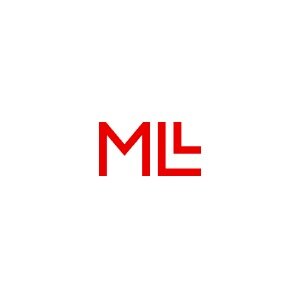Best Bankruptcy & Debt Lawyers in Switzerland
Share your needs with us, get contacted by law firms.
Free. Takes 2 min.
Or refine your search by selecting a city:
List of the best lawyers in Switzerland
About Bankruptcy & Debt Law in Switzerland
In Switzerland, bankruptcy and debt law is governed primarily by the Federal Act on Debt Collection and Bankruptcy (SchKG - Schuldbetreibungs- und Konkursgesetz). This framework provides the regulations for addressing insolvency situations, whereby individuals or businesses are unable to meet their financial obligations. The law covers various processes such as debt enforcement, the restructuring of debts, and liquidation of assets among others. The primary aim is to ensure fair treatment of creditors while offering a structured opportunity for debtors to resolve their financial difficulties. Bankruptcy proceedings typically involve the courts and official receivers, with the goal of achieving a resolution that serves both creditors and debtors.
Why You May Need a Lawyer
Individuals and businesses may seek legal advice in the area of bankruptcy and debt for several reasons. These may include:
- Complex Financial Situations: Navigating bankruptcy laws can be complex, especially when multiple creditors are involved, or cross-border issues arise.
- Debt Restructuring: When attempting to negotiate with creditors or secure a debt restructuring plan, legal counsel can offer valuable guidance.
- Filing for Bankruptcy: Understanding the various types of bankruptcy proceedings and determining which one is appropriate can require expert advice.
- Protection from Creditors: If creditors are taking aggressive collection actions, a lawyer can help protect the debtor’s rights.
- Dispute Resolution: Legal disputes may arise during the bankruptcy process which necessitate professional legal representation.
Local Laws Overview
Swiss bankruptcy and debt laws have several key features:
- Debt Collection Process: Involves initial steps such as issuing a debt enforcement order by a creditor followed by intermediate collection steps.
- Bankruptcy Proceedings: This is a court-driven process that typically begins after a creditor’s request or the debtor’s declaration of insolvency.
- Restructuring Process: Companies may pursue restructuring instead of liquidation, which involves court approval and creditor agreement to adjust the terms of debts.
- Priority of Claims: Swiss law outlines the order in which creditors are reimbursed during bankruptcy, prioritizing secured creditors.
- Personal Bankruptcy: This involves a simplified process but still requires individuals to demonstrate their insolvency.
Frequently Asked Questions
What are the initial steps in the debt enforcement process?
Creditors can initiate the process by serving a debt collection notice. If the debtor does not dispute, it proceeds to debt enforcement.
Can individuals declare bankruptcy in Switzerland?
Yes, individuals can declare bankruptcy. They must demonstrate insolvency to initiate proceedings through the courts.
What is the difference between bankruptcy and restructuring?
Bankruptcy typically involves liquidating assets to pay creditors, while restructuring seeks to alter terms of existing debts to preserve the entity.
How are creditors’ claims prioritized?
Secured creditors generally have priority, followed by unsecured creditors. The law outlines specific ranking protocols.
Is cross-border insolvency covered under Swiss law?
Yes, Swiss law accommodates cross-border insolvency issues, often coordinating with international standards and treaties.
How long does the bankruptcy process take?
The duration varies significantly based on the complexity of the situation, but it can take several months to a few years.
Can a bankruptcy decision be appealed?
Yes, decisions can be appealed in higher courts if there are grounds such as procedural errors or legal misapplications.
What protections exist for debtors during bankruptcy?
Debt repayment plans may provide temporary relief, and certain assets may be protected from liquidation.
Who oversees the bankruptcy process?
The courts, along with official receivers, oversee the process to ensure lawful and orderly proceedings.
What is the role of official receivers in bankruptcy?
Official receivers manage the bankruptcy estate, ensuring fair distribution of assets and adhering to legal obligations.
Additional Resources
For those seeking further information, several resources are available:
- Swiss Federal Office of Justice: Provides comprehensive legal publications and guidelines.
- Consumer Protection Association: Offers assistance and advice for individuals facing debt issues.
- Swiss Bankers Association: Provides insights on financial management and debt handling.
- Local Legal Societies: Many cantons have legal societies offering consultation services for debt and bankruptcy concerns.
Next Steps
If you are facing bankruptcy or significant debt issues, consider taking the following steps:
- Consult a Lawyer: Reach out to a legal professional specializing in bankruptcy and debt for personalized advice.
- Document Your Financial Situation: Gather all financial documents to provide a clear overview during consultations.
- Evaluate Debt Relief Options: Work with your lawyer to explore viable debt restructuring or relief strategies.
- Engage with Creditors: In some cases, directly negotiating with creditors with legal guidance can result in favorable terms.
- Educate Yourself: Continuous education on financial management can aid in fruitful resolution and prevent future issues.
Lawzana helps you find the best lawyers and law firms in Switzerland through a curated and pre-screened list of qualified legal professionals. Our platform offers rankings and detailed profiles of attorneys and law firms, allowing you to compare based on practice areas, including Bankruptcy & Debt, experience, and client feedback.
Each profile includes a description of the firm's areas of practice, client reviews, team members and partners, year of establishment, spoken languages, office locations, contact information, social media presence, and any published articles or resources. Most firms on our platform speak English and are experienced in both local and international legal matters.
Get a quote from top-rated law firms in Switzerland — quickly, securely, and without unnecessary hassle.
Disclaimer:
The information provided on this page is for general informational purposes only and does not constitute legal advice. While we strive to ensure the accuracy and relevance of the content, legal information may change over time, and interpretations of the law can vary. You should always consult with a qualified legal professional for advice specific to your situation.
We disclaim all liability for actions taken or not taken based on the content of this page. If you believe any information is incorrect or outdated, please contact us, and we will review and update it where appropriate.
Browse bankruptcy & debt law firms by service in Switzerland
Switzerland Attorneys in related practice areas.
Browse bankruptcy & debt law firms by city in Switzerland
Refine your search by selecting a city.
















